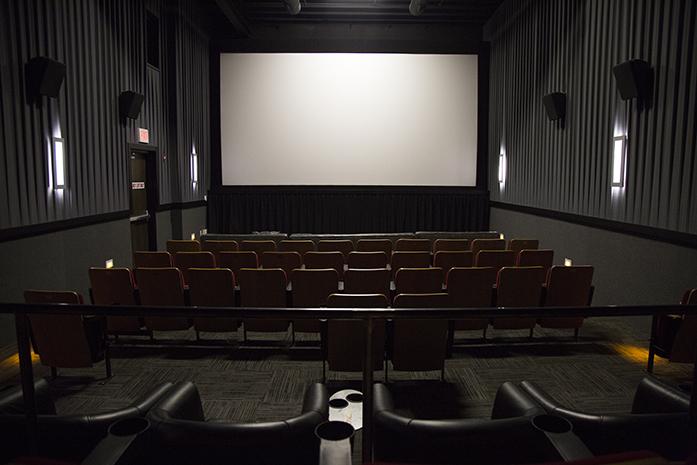A documentary that witnesses a tragedy is much different from one that submerges itself in it. Starless Dreams is a vulnerable immersion into a human condition that binds and liberates us. It dares to ask the age-old question, solve the old mysteries, and dream of light on a starless night.
On the outskirts of Tehran, girls play volleyball on concrete courts, belting out their favorite pop hits from the bottom bunk and writing down their dreams in leather bound journals.
It is hard to believe that these teenage girls are murderers, drug dealers, adulterers, and thieves.
Starless Dreams will be screened at 6 p.m. today at FilmScene, 118 E. College St.
Prolific Iranian director Mehrdad Oskouei takes us into an all-female rehabilitation and correction center. These inmates tell their horrific stories of molestation, broken homes, motherhood, poverty, and death.
As the New Year approaches, each inmate must confront the dangers inside and the temptations outside of the prison walls. The inmates comfort each other in times of strife and realize that there are commonalities within their stories. Oskouei pursues this with simple and subtle inquisition.
As the documentary progresses, we realize that the girls are not at fault. Their circumstances have fated them to live delinquent — almost nihilistic — lives. The fault is in the hands of a culture that has fostered these children.
In a conversation about human rights, one inmate asks, “Why is a man’s blood worth more than a woman’s?” This leads to an onslaught of questions regarding the degradation of women and children in Iran.
Married at 14 and a mother soon after, Ghazal knows what is like to be transparent. Hidden underneath an Adidas tracksuit and winter hat, she recants her issues with drug abuse and patronal authority.
With an addict for a mother and a criminal for a father, who, she said, treated her like a “servant.” Her hands are held in place with metal implants. These are direct results of her self-immolation.
“My life was difficult from the moment I stepped in his house,” Ghazal said. “He gave me drugs and forced me to sell them.”
The inmates line up around a pot of rice with their metal plates in hand. A new inmate is introduced. She chooses to be identified as “Nobody.”
Charged with adultery, and armed robbery, Nobody cannot remember the first time she committed a crime. She deflects the questions presented to her with dark humor.
It takes a while for Oskouei to break her stoicism. Nobody calls herself a “street kid” and would not kill anyone, except for her uncle, who is a molester. This admission pains her. She states, “I’m not as tough as I seem, it’s just an act.”
On her day of release, Nobody fears going back to the streets. She feels she will “die in a gutter one day. Society is stronger than me.”
An inmate, Khatereh, offers a new call for hope. She confronts her family after years of turmoil. She is eager to pursue an education after her release. The inmates have a chant for Khatereh as she exits the center.



